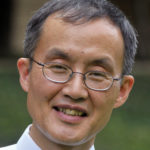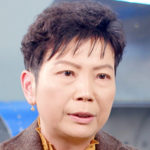![]() Every week, we do a little research of our own. We’re looking for scientists, professors, engineers, entrepreneurs—anybody, really—engaging in research and development across North Texas.
Every week, we do a little research of our own. We’re looking for scientists, professors, engineers, entrepreneurs—anybody, really—engaging in research and development across North Texas.
There’s plenty of good work being done. If you want to put R&D under your microscope, sign up for our e-newsletter.
Funding supports work on taking confusion out of forecasts
During major weathers events that could lead to floods, tornadoes, or hurricanes, wouldn’t it be nice to be able to take multiple forecast sources and meld them into a single, integrated forecast?

DJ Seo
Well, it may be on the way.
DJ Seo, a civil engineering professor at the University of Texas at Arlington, has received a $216,103 subaward from a National Oceanographic and Atmospheric Administration grant to develop just that.
“We are working to provide a tool for emergency managers to be able to make the best decisions possible based on the most complete information available,” Seo said in a statement. “The goal is to explain how the different forecast models were combined, then identify which attributes of each model are strengths and weaknesses in the context of the current event and explain how the different forecasts are combined in the context of the current event.”

[Photo: UT Southwestern video]
UTSW links inorganic phosphates to lazy behavior
OK couch potatoes, it may not be all you.
Scientists at UT Southwestern Medical Center report that inorganic phosphate, a food additive and preservative used in most food in the American diet, may contribute to why you insist on lounging your time away, derailing your exercise ambitions in the process.

Wanpen Vongpatanasin
UTSW said that phosphates occur naturally in many foods such as dairy products, meat, fish, and baking powder. It’s when you eat fast foods, processed foods, and bottled drinks that your phosphate levels can get jacked up to unhealthy proportions.
“We should not consume more than 700 milligrams of inorganic phosphate per day, but about one-third of people consume three to four times that amount,” Dr. Wanpen Vongpatanasin, M.D., professor of Internal Medicine and Director of the Hypertension Fellowship Program at UT Southwestern Medical Center, said in a statement. “Like any nutritional ingredient, too little phosphate is harmful, but too much is also harmful.”
The researchers studied mice that were fed a high-phosphate diet and they discovered measurable changes in the rodents’ ability to exercise. Also, as part of the Dallas Heart Study, the team found that the response in humans was similar to that of the mice.
![Sid O'Bryant [Photo: Courtesy UNT Health Science Center]](https://s24806.pcdn.co/wp-content/uploads/2018/11/SID_web.jpg)
Sid O’Bryant [Photo: Courtesy UNT Health Science Center]
$3M gift backs endowed chair to support dimentia research at UNTHSC
The University of North Texas Health Science Center in Fort Worth is establishing an endowed chair to support research into Alzheimer’s disease and other translational projects thanks to a $3 million gift from a longtime community volunteer whose family was affected by dimentia.
![Peggy and Dr. Joe Schooler [Photo: Courtesy UNTHSC]](https://s24806.pcdn.co/wp-content/uploads/2019/01/Schoolers_web-300x300.jpg)
Peggy and Dr. Joe Schooler [Photo: Courtesy UNTHSC]
UNTHSC said in a release that Sid O’Bryant, professor and director of the Institute for Translational Research, will hold The Dr. Joe and Peggy Schooler Endowed Chair in Pharmacology and Neuroscience. Two endowed scholarships will also be created through the estate’s gift.
“The endowment from Dr. Joe and Peggy Schooler is of tremendous importance to the advancement of translational research at UNTHSC, which is geared to improving the lives of patients suffering from neurodegenerative diseases,” Dr. O’Bryant said. “This endowment will help support the ongoing research as well as pave the way for new lines of work to be conducted.”
The endowment will support the university and O’Bryant, who has been working to develop a blood test to detect Alzheimer’s disease within a primary care setting—the first-ever study of a blood screening test for biomarkers to be used with primary care patients.
UNTHSC said Peggy Schooler was married for 24 years to Dr. Joe F. Schooler Jr., who died in 2008. He was a physician who opened a private practice in Fort Worth in 1963. Peggy was an active community volunteer who scheduled drivers for her Woodhaven neighborhood’s Citizen’s on Patrol group. She had a personal interest in Alzheimer’s and dementia, having cared for her mother, who suffered from dementia.
READ NEXT
R&D: UTSW Works on Alzheimer’s Prevention Drug; UTA prof tackles pipeline leaks
![]()










![R&D: UTA Professor's Quest to Unify Storm Forecasts; UTSW Studies 'Couch Potato' Behavior Photo: Igor Zhuravlov/iStock]](https://s24806.pcdn.co/wp-content/uploads/2016/09/Verizon-tornado-970-iStock_IgorZhuravlov.jpg)


























































